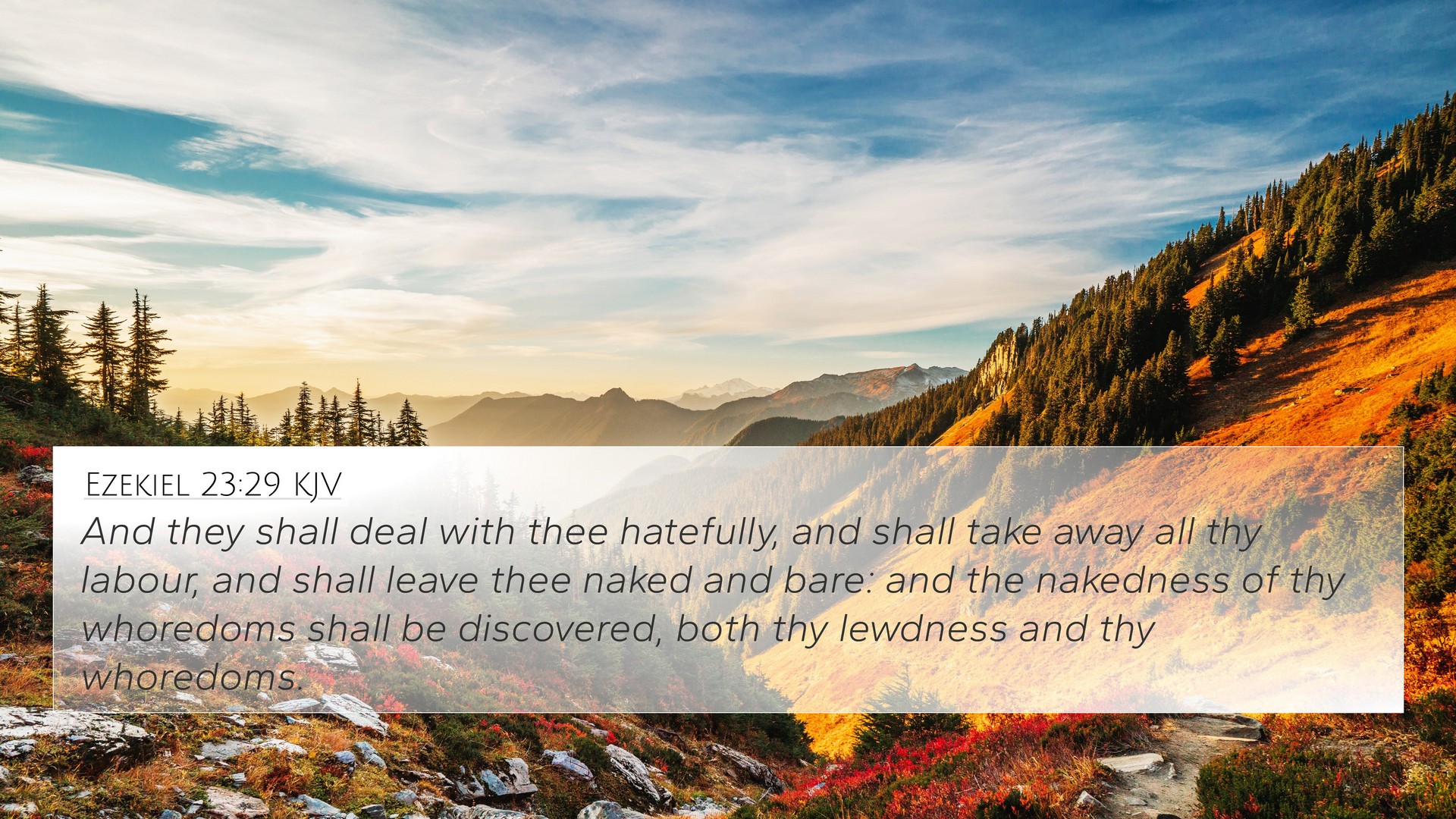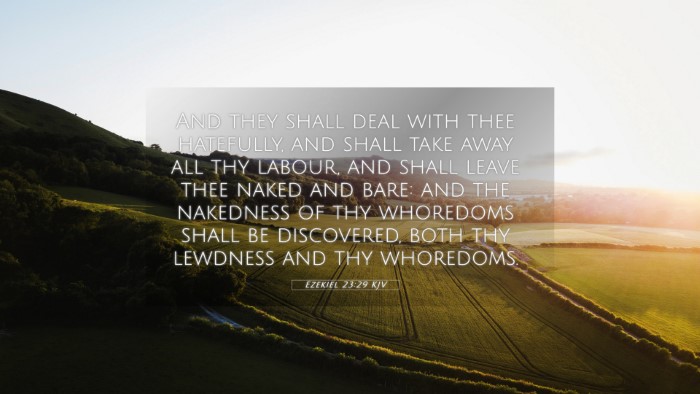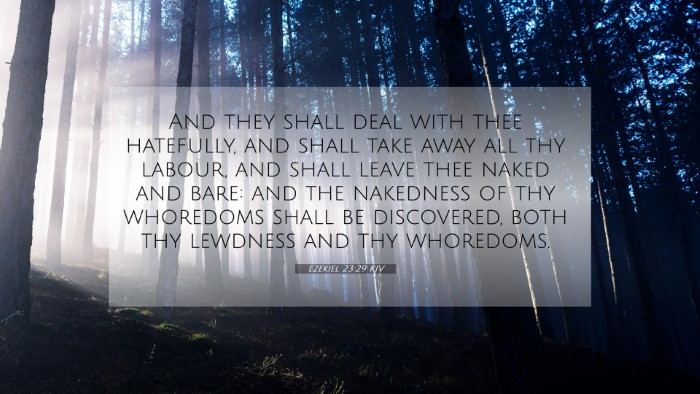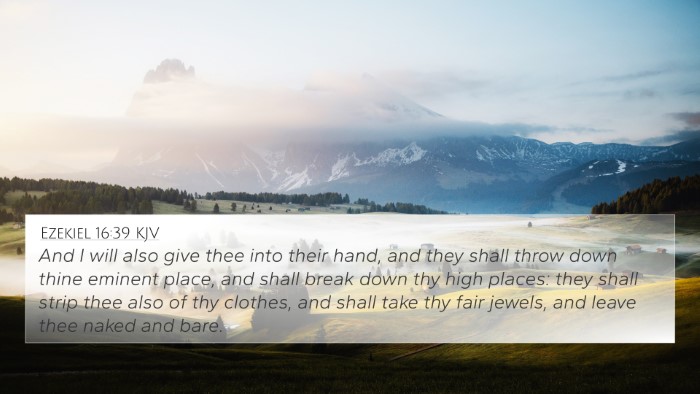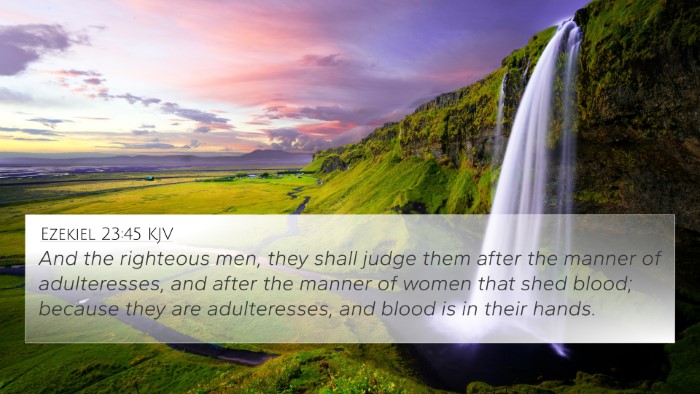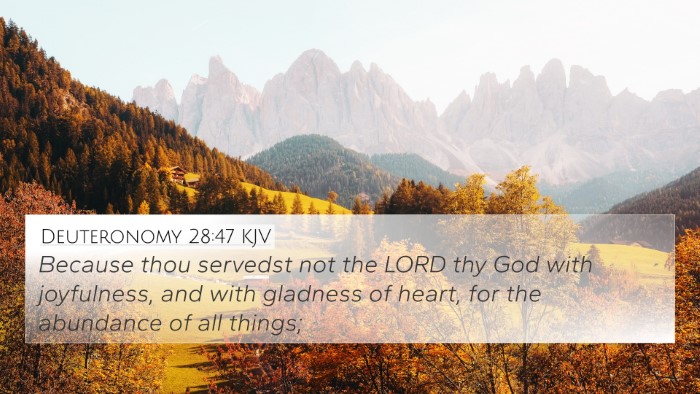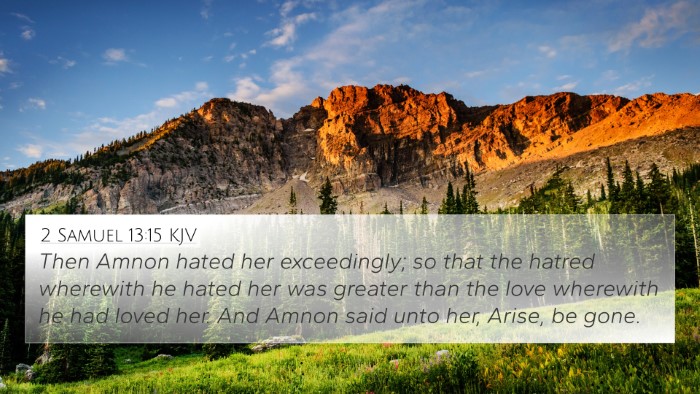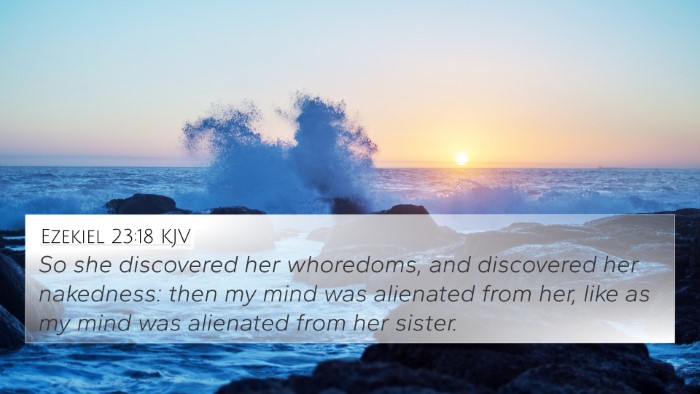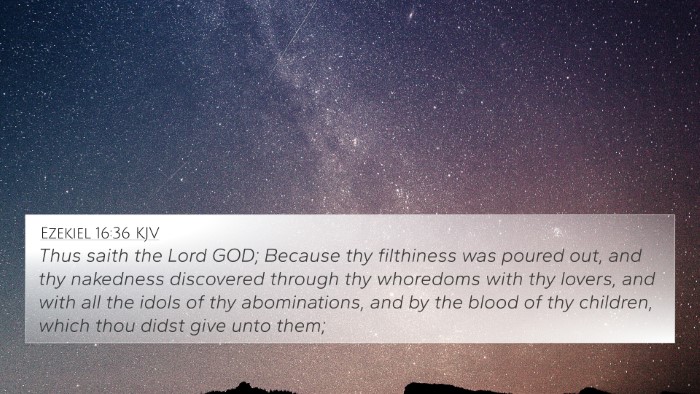Ezekiel 23:29 reads, "And they shall deal with thee hatefully, and shall take away all thy labour, and shall leave thee naked and bare: and the nakedness of thy whoredoms shall be discovered, both thy lewdness and thy whoredoms." This verse is part of a larger prophetic message delivered by Ezekiel concerning two sisters, Oholah and Oholibah, representing Samaria and Jerusalem respectively, who engaged in spiritual unfaithfulness towards God.
Through the analysis of Ezekiel 23:29, insights can be drawn from various public domain commentaries to provide a comprehensive understanding of its meaning. Below is a summary of interpretations from Matthew Henry, Albert Barnes, and Adam Clarke that offer a rich tapestry of understanding regarding this scripture.
Commentary Insights
-
Matthew Henry:
Henry emphasizes the metaphor of spiritual adultery present in this verse, likening the Israelites' unfaithfulness to God as a harlotry. The resultant shame and exposure of their sins signify God's judgment upon their idolatries. He notes that God's people had turned away from Him to pursue foreign practices, leading to severe consequences.
-
Albert Barnes:
Barnes interprets the 'hate' mentioned in this verse as a reflection of God’s displeasure and the eventual consequences that would unravel in their lives due to their disobedience. The stripping away of their labor indicates not only physical loss but a spiritual void created by their immoral pursuits.
-
Adam Clarke:
Clarke elaborates on the idea that the exposure of their nakedness illustrates the total humiliation that comes upon those who forsake God. The phrase “naked and bare” symbolizes vulnerability and the stripping away of honor, emphasizing the severity of their transgressions. This highlights the loss of God's protective grace.
Thematic Analysis
The verse highlights several themes including:
- Spiritual Adultery
- The Consequences of Sin
- Divine Judgment
- Restoration and Repentance
The interactions between these themes provide a rich framework for understanding God's character and His dealings with humanity, particularly in the context of faithfulness and betrayal.
Cross-References
Ezekiel 23:29 can be cross-referenced with several other Bible passages that reflect similar themes of unfaithfulness and divine judgment:
- Jeremiah 3:2-3: Emphasizes spiritual adultery and the judgment that follows.
- Hosea 4:10-12: Discusses idolatry and the consequences faced by the people.
- Isaiah 47:3: Describes the humiliation of those who have forsaken their God.
- Revelation 17:1: Symbolizes the Whore of Babylon representing spiritual unfaithfulness.
- Ezekiel 16:37: Similar themes of exposure and judgment related to infidelity.
- James 4:4: Declares that friendship with the world is enmity with God.
- 1 Corinthians 6:19-20: Highlights the concept of the body being a temple, implying God's ownership and call against immorality.
Cultural Context and Importance
Understanding Ezekiel 23:29 within its historical and cultural context is essential. The image of harlotry in the Old Testament scriptures served as a powerful metaphor for the spiritual state of Israel, indicating how their unfaithfulness to God mirrored illicit relationships. The thorough cross-referencing among the prophetic books provides depth to this metaphor, establishing connections between God's warning and Israel's historical context.
Comparative Bible Verse Analysis
In employing a Bible cross-reference system, the connections established between Ezekiel 23:29 and other scriptures allow for a comparative study that reveals consistent themes of judgment, the call to repentance, and the recognition of sin's effects. Such analysis aids in sermon preparation, personal study, and deeper theological comprehension.
Practical Application
Reflecting on the message of Ezekiel 23:29 leads to vital applications in contemporary spiritual life, including:
- Identifying and confessing areas of spiritual unfaithfulness.
- Understanding that choices produce consequences.
- Maintaining a focus on God’s holiness and righteousness in daily living.
- Encouraging accountability within community to uphold spiritual integrity.
Conclusion
Ezekiel 23:29 serves as a profound reminder of the weight and significance of spiritual fidelity. Delving into this scripture through public domain commentaries not only illuminates its meaning but also connects us with a broader biblical narrative filled with warnings, the call for repentance, and the gracious offer of restoration and redemption.
